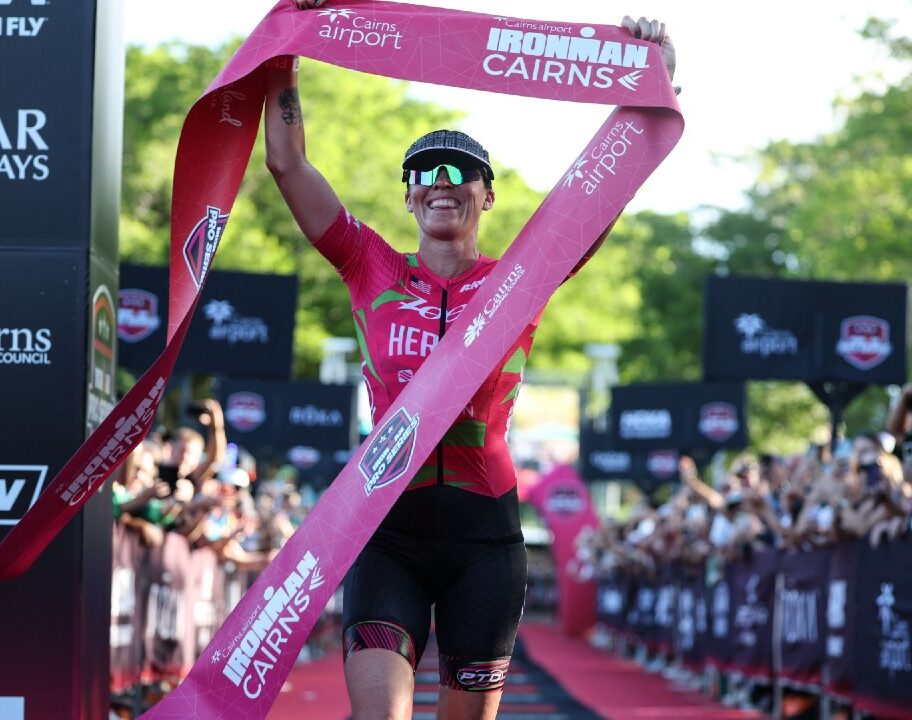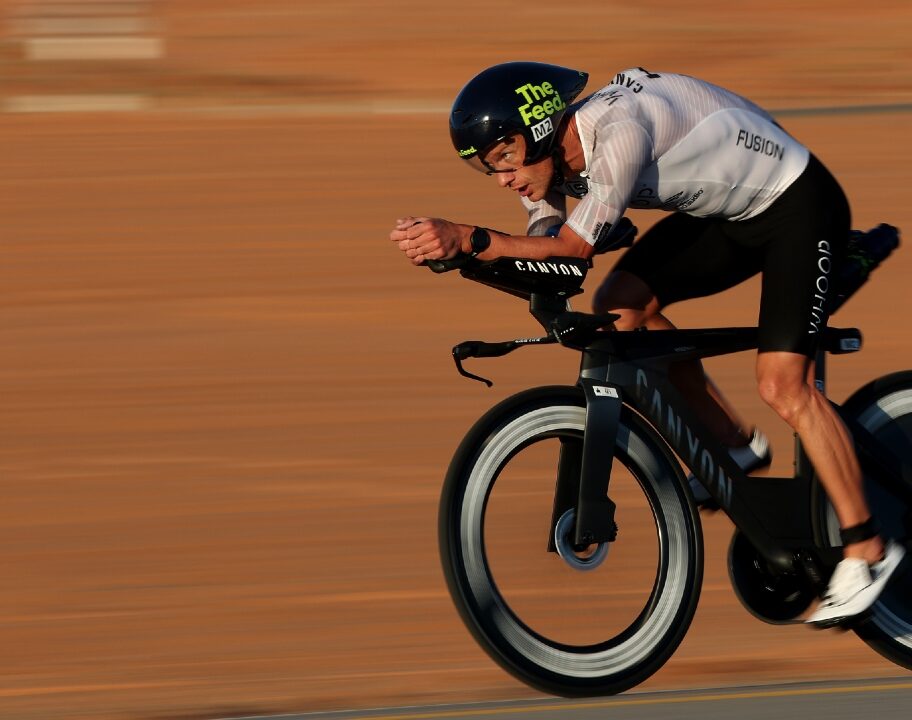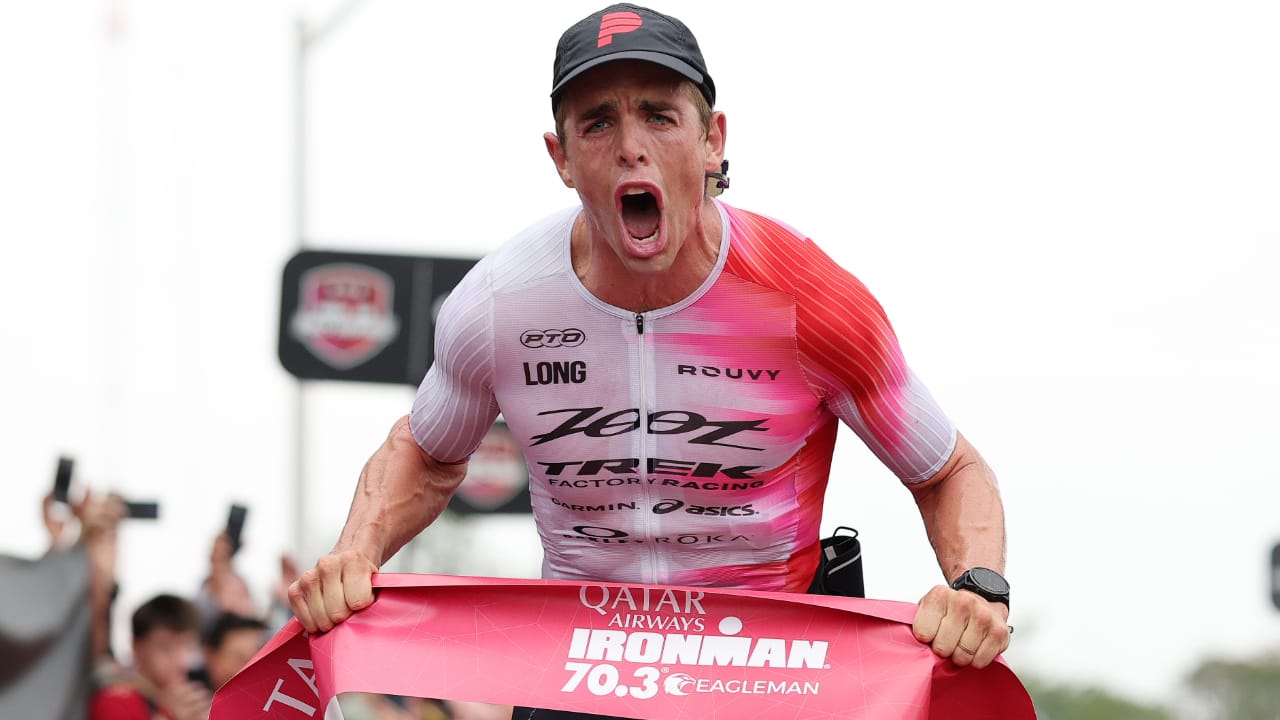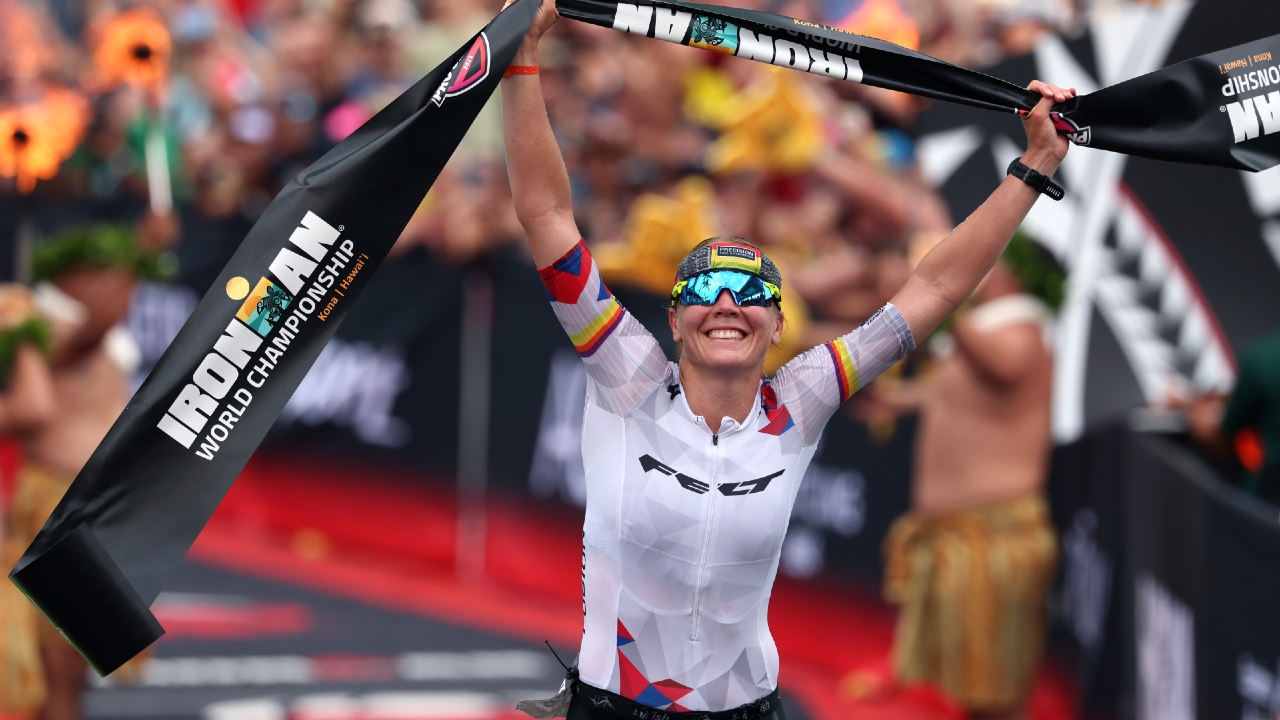Well that’s it. The IRONMAN World Championship season is over! There are still of course IRONMAN races left for 2025, but for World Championships, and the IRONMAN Pro Series, we are done!
And what a last couple of races they were in Marbella, Spain to cap off the year. Mirroring the drama of Kona and Nice, with epic showdowns between the favourites.
In the women’s race, six of the top ten from the IRONMAN 70.3 World Championship in Taupo last year were on the start list. Additionally, eight out of the top 13 from Kona. This included the 2025 IRONMAN World Champion, Norway’s Solveig Lovseth. It also included the three time IRONMAN 70.3 Champion Taylor Knibb (USA), while 2021 IRONMAN 70.3 Champion, Lucy Charles-Barclay (GBR) was also down to start.
The build up
For Taylor and Lucy, it had been last-minute decisions to race, getting the all clear from their support teams just days before.
Both suffered in the heat in Kona, resulting in them not finishing the race. For Lucy she was pulled off the course with perhaps 10-15km left in the run. For Taylor the lights went out just a few km from the finish. Kona would for sure have taken its toll and Taylor stated in the press conference, she was barely awake for three hours at a time in the days following Kona, just being so tired, wanting and needing to sleep all day.
So, with the all clear, how would Lucy and Taylor fare?
It wouldn’t just be those two though. Kona was likely to have impacted everyone who raced on The Big Island, even those who finished may have struggled over the last few weeks to bounce back or hold onto form and motivation after such a physical and mental challenge of that race.
For the new IRONMAN World Champion Lovseth, her life would have for sure been a whirlwind since Kona, in fact stating in contrast to Knibb, she barely got three hours of sleep in the days following the race.
The IRONMAN athletes would then be up against the middle distance specialists or those women who had moved up from the WTCS circuit including Britain’s Jess Learmonth and Georgia Taylor-Brown and Germany’s Tanja Neubert, who recently finished ninth at the World Triathlon Grand Final in Wollongong.
The race itself
Ok, so enough about the pre race thoughts…what actually happened…
From the gun, it was clear that Kona certainly hadn’t impacted Charles-Barclay’s swim, as she set off and got a gap on the rest of the field. I was wondering whether Learmonth and Knibb could swim with LCB over the shorter distance, but they were gapped early and so formed the first chase pack behind. They ended up exiting the water just shy of 50 seconds behind LCB.
Brazilian Djenyfer Arnold was next out but the rest of the main players were in a huge pack of 17, exiting just over two minutes back from the lead.
This pack included Taylor-Brown, Neubert, Kat Matthews (GBR), Paula Findlay (CAN) and Lovseth.
Knibb made light work at the start of the bike, reeling in and bridging up to LCB at the front. In her finish line interview, Knibb said she perhaps got a little excited in the first 40minutes. Whilst LCB and Knibb pushed the pace together at the front, was the race turning into a Kona replay?
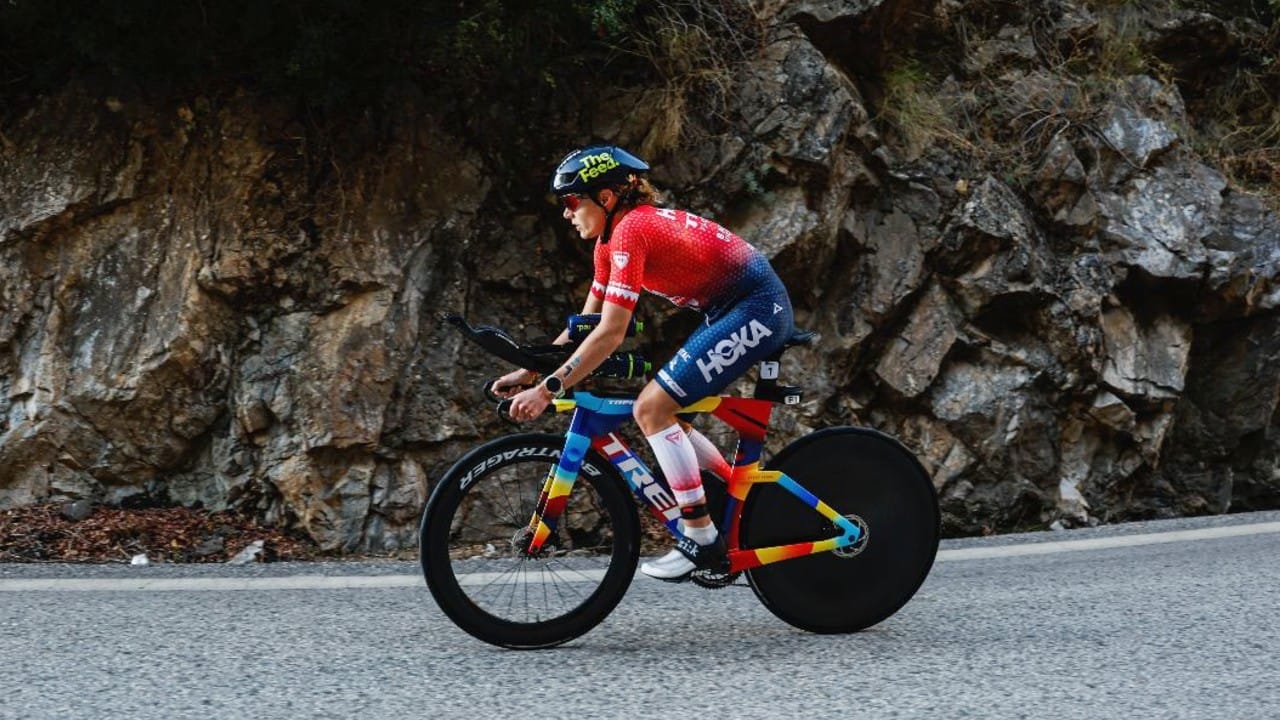
Findlay, was riding well and moving through the field, she’d eventually form a pack with Matthews, Learmonth and Denmark’s Sif Bendix Madsen as the bike went on, although they weren’t really making grounds on the leading two. They would come into T2, 3min 49seconds back from Knibb and LCB.
Knibb would take charge on the run, having come into T2 just a few seconds ahead of LCB, she set off and held a 10-20sec gap to LCB until 7km into the race, when LCB caught up and moved ahead.
Out of the chasers, Matthews set off at pace. Going all in to chase down the leaders and make the title hers. She was gaining time and quickly. However, her progress soon stopped, as around 5km into the run, she pulled up limping. Afterwards, stating she’d pulled her calf a few days before the race, and unfortunately it wouldn’t hold when she applied the speed. Similar story to Findlay who’d said prior to the race she’d had a running injury, so wasn’t sure how her run would go, but knew her biking was in a great place. Matthews and Findlay were DNFs sadly.
That left it to LCB and Knibb. It was LCB’s day this time, stronger on the run and able to pull away from Knibb. LCB took her second Ironman 70.3 World Championship title. It was clearly an emotional finish for the Brit as she ran down the carpet to take the tape. A lot of work from LCB and her team, to get her back to a start line after Kona.
Knibb finished a creditable second. In typical Knibb fashion, she speaks openly and answers the questions differently to what most of us perhaps would. When asked if second place is redemption for her race in Kona, she stated it’s not that it erases what happened, that doesn’t go away and can’t be changed, but spoke of the gratitude for taking the chance and the last minute decision to be in Marbella.
Neubert finished in third. Three of the top five women were from WTCS backgrounds, having raced on the WTCS circuit in the past year.
My thoughts and analysis – Kat goes all in
It’s always interesting to see how Pros tell their stories. For instance, Paula Findlay was open before the race about her injury and limited running. However Kat Matthews, unless I missed it, had kept that quiet. Is it for their own benefit or playing mind games with their opponents? I’d assume Matthews didn’t want Lucy Charles-Barclay and Taylor Knibb to know, potentially making them put effort in on the bike, thinking that Matthews would be running them down. Perhaps hoping that they may go too deep, and struggle with the run. Allowing Matthews even with a calf injury to run them down.
Obviously not knowing (so purely speculating, but hey that’s what I’m meant to do in these), I’d assume Matthews was hoping the calf was good. She did however set off at quite a pace. Which to all of us who didn’t know about the injury, wasn’t that surprising. One thing I respect about Kat is that she’s confident in knowing what she’s capable off. Her run in Kona featured a virtually identical first and second half, which is pretty much unheard of in marathon running let alone Ironman running.
She’s not one to start off conservatively and build. Her run is her weapon, and she knows what she can run, and sets off to achieve that each time she races. In fact you can almost see her confidence growing and growing each time she starts the run in every race, building on what she’s run before and believing she can do something special. This I feel is the mindset she probably went into Marbella with. That chance that she could do something special, and go for that elusive world title. Also, I think what was also perhaps part of it too was that for Matthews it’s all about the win now. She’s got enough seconds and podiums, but it’s that big win that has eluded her so far. So why not go all in, the chance to win? She wasn’t in the race to come second (again) or third or less. She was in it to win and raced with that intent and mindset.
Health comes first
Other thoughts around Lucy Charles-Barclay and Taylor Knibb racing in Marbella just four weeks after their medical DNF’s in Kona. I’m sure there are a lot of opinions as to whether they should have raced or not. I also had my concerns, but mainly for their health and wanting to see them with longevity in the sport. However I do know that they both have incredible teams around them.
I don’t know about Lucy, but I know Taylor was on strict rest for most of the weeks after Kona and into Marbella. She slept almost constantly for three days. She was having blood work and was herself concerned and smart to what the long term effects could be. Taylor is also a racer and loves to race, and gets excited by racing and cool locations and interesting courses. Marbella ticked those boxes. However the fact that it was such a late decision and she only got the green light the week before the race, assures me (as it should everyone else in the peanut gallery) that the team knew what they and she were doing. I think (or hope) that we have moved on from disregarding athletes’ health for the pursuit of victory. I think the sport, the experts, the teams and athletes are much more aware of putting athletes’ health first.
I, for one, am happy for both Lucy and Taylor that they got to race and show their incredible talents and hard work, and that they got to see a finish line, I’m sure too there were nerves and uncertainty on their parts, about what would happen in Marbella. The doubts that creep in after a race like Kona. But they are two of the best in the world, and it was great to see them back on a start line. I think they would have been smart enough in the race, that if anything felt off, they would shut it down.
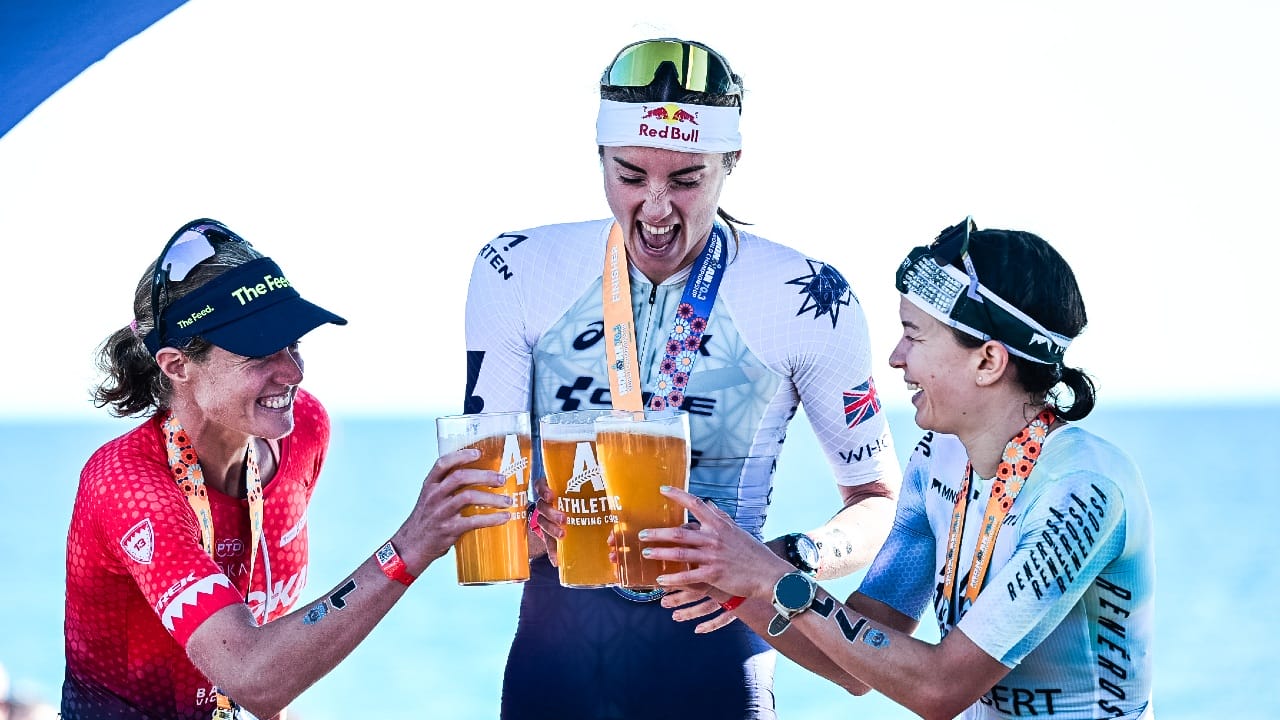
Of course none of us know the conversations within the teams, or the real thoughts and motivations and what is going on with athletes behind the scenes. There is an element of the wall we put up to show strength, not show our competitors any sign of weakness. But there is also an element of openness and honesty and showing the real ups and downs of sport and being an athlete, and the work that goes in to making it to the start line, before we even get the privilege to race, and hopefully cross that finish line.
IRONMAN Pro Series recap
The IRONMAN Pro Series is in its second year. It consists of 18 races at 17 events globally. Athletes’ top five results count towards the series with a maximum of three IRONMAN races being allowed.
IRONMAN races are 5000 points for the win, whilst 70.3 are 2500 points. For the IRONMAN World Championship it’s 6000 points for the win, and for the IRONMAN 70.3 World Championship, 3000 points.
For every second after the winner had crossed the line, 1 point is deducted. At the end of the year, the top 10 ranked athletes share a $1.3m prize pool, with prize money all the way down to 50th.
For the second year in a row, Kat Matthews took home the series title. She was pretty secure to take the series win before Marbella but it wasn’t 100% confirmed, Solveig Lovseth, was in reach. Then when Matthews dropped out of the race during the run, would that open the door for Lovseth?
In the end the gaps back to Lovseth from the front were too much and Matthews was safe. Lovseth finished in second, and Lisa Perterer (AUT) was secure in third, even before the 70.3 World Championship.
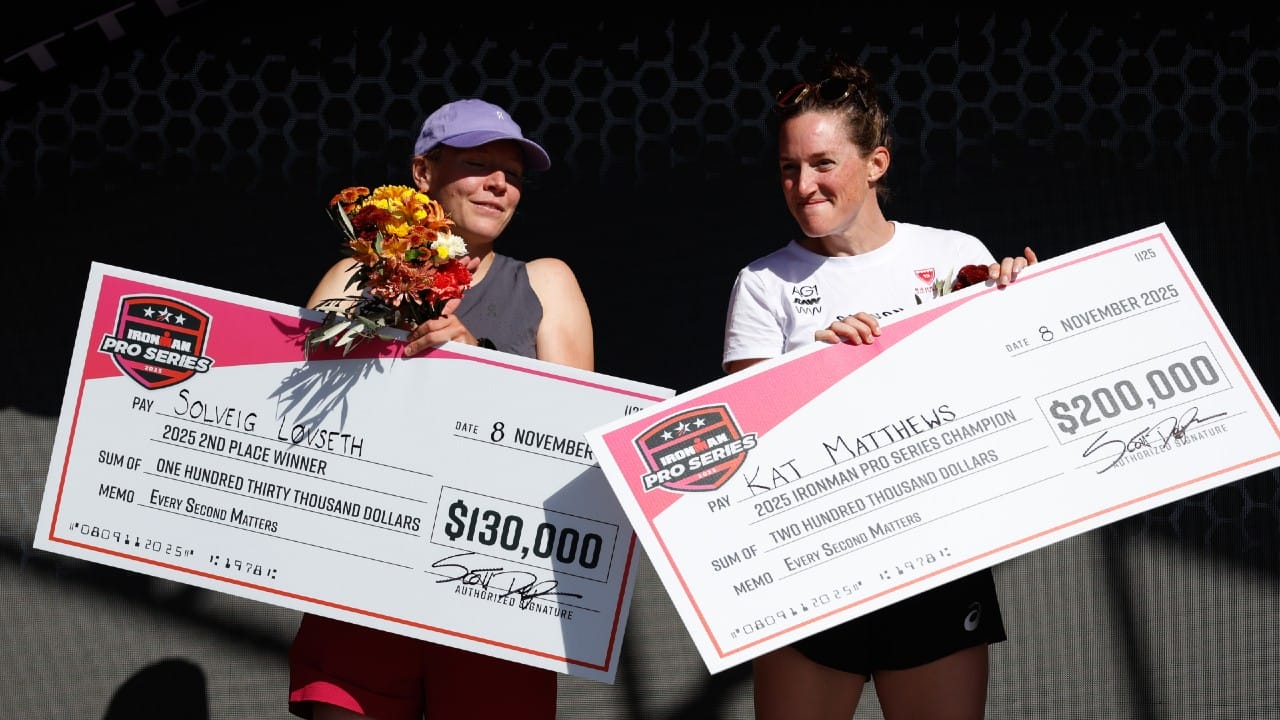
In the top five in the series, where was no change after the IRONMAN 70.3 World Championships.
- Matthews (20,845points, $200k)
- Lovseth (20,351, $130k). This is more than Lovseth won for the IRONMAN World Championship ($125k)
- Lisa Perterer (17,956 points, $85k)
- Jackie Hering (16,330points, $70k)
- Laura Jansen (14,961 points, $50k)
- There were gains for athletes who raced in Marbella, from lower down the rankings, but who then scored enough to move them into the top 10. Regan Hollioake finished 29th In Marbella and moved up one place to finish sixth in the series (14,852 $40k).
- This dropped Anne Reischmann down one place to seventh. Reischmann didn’t race in Marbella.
- Danielle Lewis finished 26th in Marbella and has moved her up two places to now be in eighth in the series (12,669, $29k).
- Hannah Berry, who was fourth at the IRONMAN World Championship, chose not to race, so dropping to 9th but remaining in the top ten.
- Maja Stage Nielsen finishing in 28th in Marbella, put herself into the top 10 (12,075, $10k).
Further down, Charlene Clavel, Sara Svensk and Katrine Graesboll Christensen moved into the top 15 securing an extra $2k in prize money.
Let’s hope 2026 is just as exciting if not more so!

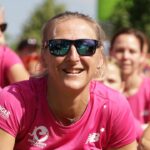





![Caroline Livesey wins the first ever Scottish National Gravel Championships in August 2025. [Photo credit: Outsider Events]](https://www.tri247.com/wp-content/uploads/2025/11/Caroline-Livesey-scots-national1.jpg)
